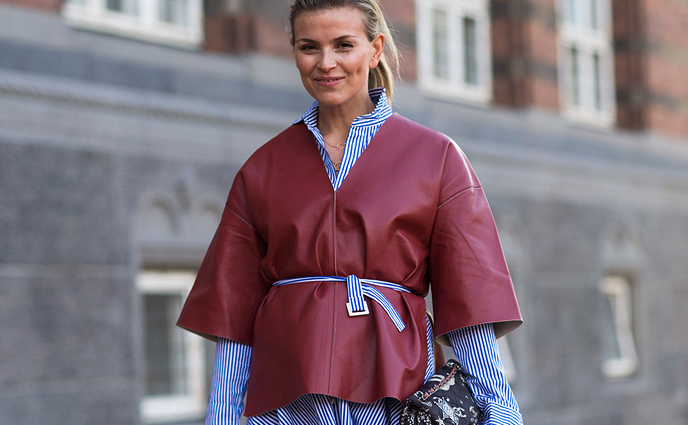Though sometimes melasma will disappear on its own, it can be a lot trickier to manage than pregnancy acne. "The melanocytes are finicky and deep in the skin. They don't respond as well to topical treatment. There are few ways to reliably treat melasma," Sullivan says.
Moms-to-be should definitely steer clear of products containing hydroquinone, a common brightening agent. While studies haven't found a correlation between hydroquinone and birth defects, research indicates that the body absorbs around 35 to 45 percent of topical hydroquinone, making it much riskier to use than ingredients that are absorbed at a much lower rate.
Your best bet? Focus on preventing melasma by being exceptionally cautious with sun exposure. "Wear a heavy sunscreen -- the kind that makes your face white -- when you're outdoors," Shamban says. (Though it won't make your face white, I like Isdin Eryfotona Actinica Ultralight Emulsion SPF 50+, $50, for its high SPF and lightweight mineral formula, but here are a bunch of other great mineral sunscreen options).
And think beyond the beauty counter. "The best defense for hyperpigmentation during pregnancy is a hat because even sunscreen will allow melasma to develop," Tanzi adds. "Always wear a hat when in the sun during pregnancy." (We're a fan of these stylish sun hats.)
Additionally, glycolic acid may further cement itself as your skin's new BFF, as it's another safe way to help even out your skin tone during pregnancy. After you've made it through your pregnancy, Sullivan says you can consider more aggressive treatments, like chemical peels and lasers -- one of which I hope to have time to book somewhere between picking out a daycare and sending the little one off to college.
Moms-to-be should definitely steer clear of products containing hydroquinone, a common brightening agent. While studies haven't found a correlation between hydroquinone and birth defects, research indicates that the body absorbs around 35 to 45 percent of topical hydroquinone, making it much riskier to use than ingredients that are absorbed at a much lower rate.
Your best bet? Focus on preventing melasma by being exceptionally cautious with sun exposure. "Wear a heavy sunscreen -- the kind that makes your face white -- when you're outdoors," Shamban says. (Though it won't make your face white, I like Isdin Eryfotona Actinica Ultralight Emulsion SPF 50+, $50, for its high SPF and lightweight mineral formula, but here are a bunch of other great mineral sunscreen options).
And think beyond the beauty counter. "The best defense for hyperpigmentation during pregnancy is a hat because even sunscreen will allow melasma to develop," Tanzi adds. "Always wear a hat when in the sun during pregnancy." (We're a fan of these stylish sun hats.)
Additionally, glycolic acid may further cement itself as your skin's new BFF, as it's another safe way to help even out your skin tone during pregnancy. After you've made it through your pregnancy, Sullivan says you can consider more aggressive treatments, like chemical peels and lasers -- one of which I hope to have time to book somewhere between picking out a daycare and sending the little one off to college.





